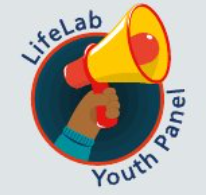Institutional Context
Summary
The University of Southampton is an anchor institution in our region and the only Russell Group university on the south coast, employing 6,000 staff alongside a 20,000+ student population. Located in one of the world’s significant port cities we are the second largest employer in the city of Southampton making an estimated economic contribution of £1.3bn per annum to the region. A comprehensive, research-intensive university; our contribution is national and global. Our overall economic impact is £4.14m per annum, more than half of which stems from research and knowledge exchange. Driven by making a difference and achieving the remarkable we are committed to making a positive societal impact, increasing social mobility, transforming lives and enhancing prosperity locally and globally.
Institutional context
The University of Southampton is a large, comprehensive, interdisciplinary university. A founding member of the Russell Group within which we ranked 4th for Research Impact in REF2021. Our world-class research has foundations in curiosity-driven research, disciplinary excellence, and interdisciplinary collaboration. We rank in the top 1% of global universities (QS:World-University rankings-2022).
We started as the Hartley Institute in 1862, becoming the first University granted the Royal Charter by Her Majesty Queen Elizabeth II in 1952. We now have five connected campuses in Southampton, one in Winchester, and one in Iskandar Puteri, Malaysia. We sit across five local councils (Southampton, Winchester, Eastleigh, Test Valley, and Hampshire County Council). We are also at the heart of two Local Enterprise Partnership (LEP) regions; Solent and EM3.
Celebrating 70 years of university status, we launched our new University Strategy (2022). Our core purpose and vision are to inspire excellence to achieve the remarkable and build an inclusive world. People are at the heart of our strategy and at the heart of everything we do.
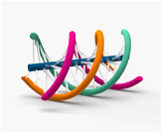
Our KEE goals are to:
Enable our staff and students engaged in KEE to gain skills and experience to help them to succeed in their careers, realise their potential to innovate and deliver impact.
Grow and deepen our partnerships, from policymakers to industry and third-sector organisations to be the partner of choice.
Transform and simplify our processes, systems, and customer journey to better fulfil our
stakeholders’ needs.
Prioritise the KEE activities targeted for growth.
Grow our financial surplus and overall income.
Enable KEE activities to show their contribution to our shared purpose.
We signed the Civic University Charter in 2020 leading to a Civic University Agreement signed in 2023 with our five local councils. The four pillars of our Civic Charter are Place, People, Partnerships, and Impact. Our seven priority areas developed in consultation with our partners are:
Education, Learning and Future Jobs
Research, Innovation, Enterprise, Business and Economic Growth
Staff, Students and Graduate Support and Retention
Health and Wellbeing
Improving the Quality and Cultural Life of our Places
Environment, Sustainability, Decarbonisation and Biodiversity
Social Justice and Equality
Our region has a strong ecosystem for innovation, to which we are a key contributor. Income from Consultancy, Facilities, Regeneration Income, CPD and income generated from Intellectual Property was £79m/year in 2021/22 (source: HEBCIS). In 2020/21 our income from these sources was fourth highest in the sector, and at 11% of turnover, the highest proportion in the Russell Group (source: HEBCIS). Yet over 45% of Southampton’s population live in neighbourhoods within the 30% most deprived nationally (Southampton data observatory). We work with our civic partners to achieve socio-economic benefits and to improve the lives and environment of people across diverse communities in a just and responsible way.
For further information, please send queries to KEandEnterprise@soton.ac.uk
Local Growth and Regeneration
Summary of approach
The University of Southampton is an established contributor to the economic, social, and cultural life of our region through research, knowledge exchange and enterprise, educational and outreach activities, as well as through commercialisation and employment. We ranked 7
th for our research impact, among non-specialist institutions (REF 2021). We work closely with the Solent and Enterprise M3 LEPs. We work in partnership with local councils in Southampton, Eastleigh, Test Valley, Winchester and Hampshire County Council, with whom we signed the Civic University Charter in 2020. This led to signing our Civic University Agreement in 2023, which sets out our seven priority areas for contributing to the prosperity of our region and meeting the needs of our communities.Aspect 1: Strategy
The University of Southampton sits across two LEP (Local Enterprise Partnership) regions; Solent (Southampton campuses) and Enterprise M3 (Science Park and Winchester Campus). We work with both, contributing to and aligning with local industrial strategies.
The Solent LEP area covers an economic geography spanning 600 square miles of southern Hampshire and the Isle of Wight (IoW). The eastern half of the area is urbanised, but the west is more rural, including the New Forest National Park.
The Solent region has 340 miles of coastline. It hosts a globally leading marine and maritime cluster. In 2022 the Solent Freeport was among the first approved UK Freeports. The Solent Growth Strategy highlights strategic sectors and clusters of marine, aerospace and defence, advanced manufacturing, engineering, transport and logistics, and low-carbon and visitor economy businesses for development.
EM3 borders London, to the North, and Southampton, to the South, encompassing west Surrey and most of Hampshire. It has a knowledge, digital and design-based economy. This includes high-value sectors such as space and satellite; aerospace and defence; digital and cyber security; life sciences and med-tech; and 'Createch' (creativity and technology, including gaming).
We are a member of Innovation South. This EM3-led consortium of >100 organisations includes businesses, industry, and partners from the private and public sectors.
We work in partnership with our local councils, across parties, underpinned by our Civic University Agreement. Hampshire County Council has set out long-term ambitions shaped by the work of the Hampshire 2050 Vision. This identifies five drivers for change in the region:
Climate
Environment
Economy
Population
and Technology.
Responding to these is a priority for the region’s future prosperity, quality of life, and the protection and enhancement of its character and environment.
We were a key partner in Southampton’s shortlisted City of Culture (2025) bid. We committed to building on the partnerships created through this programme. We are investing in the Southampton 2025 Trust alongside the Council and Solent University. This will deliver an agreed programme with culture at its heart. The University founded the John Hansard Gallery (1980), which moved from campus to the centre of Southampton in 2018, as part of the University’s Arts strategy (2018-22).
Our Public Engagement with Research Unit (PERu) and Public Policy Southampton Unit (PPS) provide informal mechanisms for understanding and addressing community research needs. The programme of platform-based engagement coordinated by PERu embeds a diverse set of collaborations with city and regional organisations.
Aspect 2: Activity
We have a vibrant ecosystem for supporting innovation, commercialisation and spin-outs. We support a healthy infrastructure for supporting knowledge exchange with local, regional, and national policymakers, services, businesses, creatives and the third sector.
Our Southampton Enterprise Board provides strategic direction and oversight of all KEE activities, including those relating to local growth and regeneration. It is chaired by the Vice President for Research and Enterprise. The Board’s remit includes policy development and implementation, commercialisation and consultancy activities, facilities access, student entrepreneurship and business acceleration activities, and considers spin-out deals.
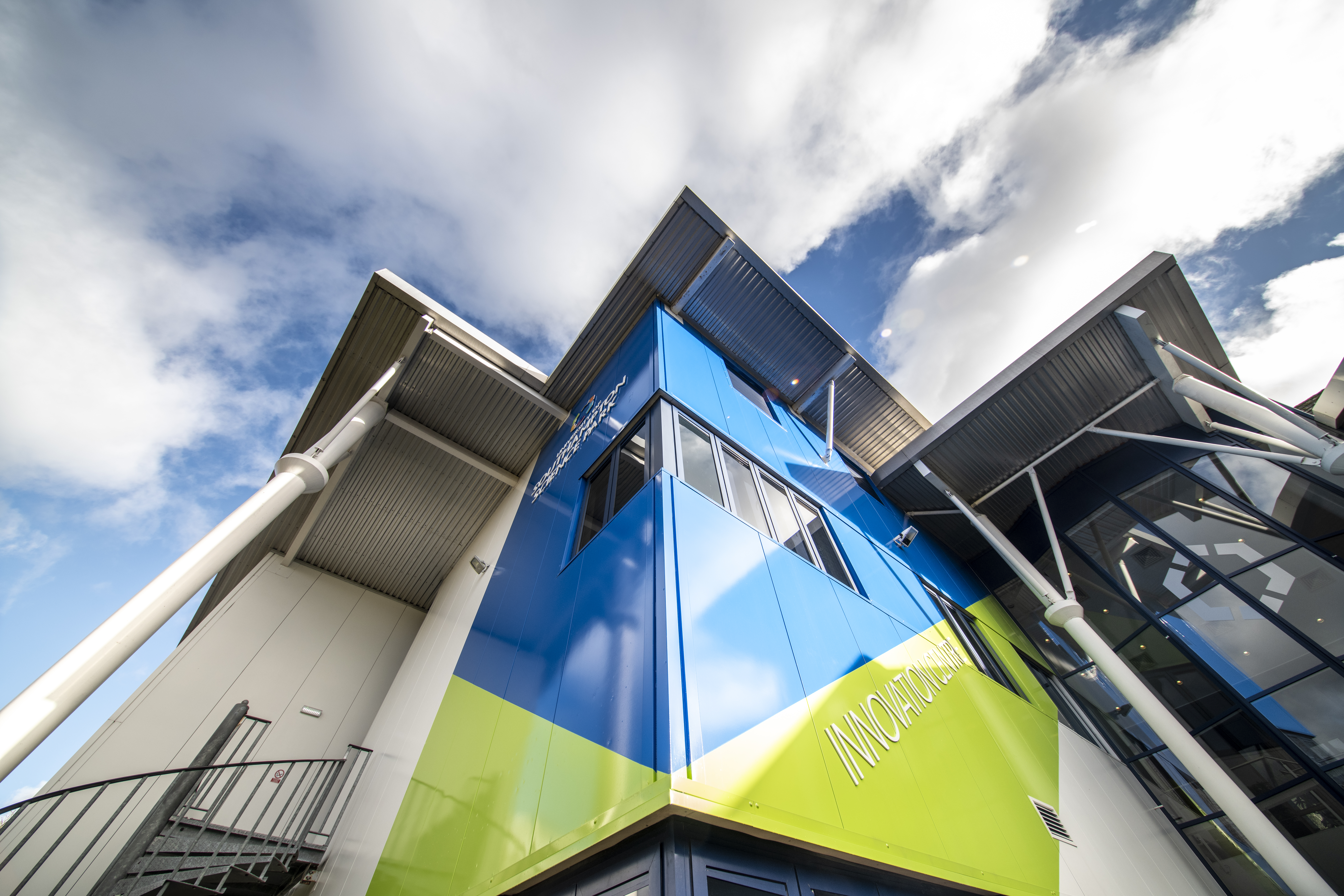
The ICURe Programme originated in Southampton and is delivered with SETsquared. It is a flagship programme for Innovate UK and we remain a delivery partner. The programme objectives are to improve the entrepreneurial skills of ECRs and strengthen links between academic and industrial communities. The Scale-up Programme provides world-leading support to >385 innovative SMEs with growth ambitions. It uses the knowledge base of SETsquared university partners across health and well-being, environmental sustainability, marine and maritime, digital innovation, and advanced engineering and manufacturing sectors.
Our on-campus accelerator FutureWorlds provides entrepreneurial support to our academic and student communities. It offers training, mentors, and access to venture capital to help researchers commercialise their research.
Research and Innovation Services (RIS), deliver the central support for Knowledge Exchange, Impact, and commercialisation.
RIS includes PPS and PERu. PPS facilitates meetings between academics and local policymakers to exchange knowledge and provide expert advice. Recently it has been working with:
Hampshire County Council on climate change and improvement of social care.
Southampton City Council on the levelling up agenda and Council’s Areas of Research interests.
Partnership for South Hampshire (including twelve local Councils), and New Forest National Park Authority on green recovery for the Central South.
RIS provides a means for businesses to access university knowledge and support. The Corporate partnerships programme has dedicated leads (academic and professional services) who manage relationships with ~22 strategic partners. It facilitates collaborative basic and applied research, experimental development; enterprise via technology development, knowledge exchange and problem-solving; and support for graduate recruitment and alumni relations.
The business engagement team includes dedicated support for Space at Southampton partnerships with industry (including regional SMEs). These enable us to translate our strengths in space and space-enabled technology research and education to create impact and further innovation.
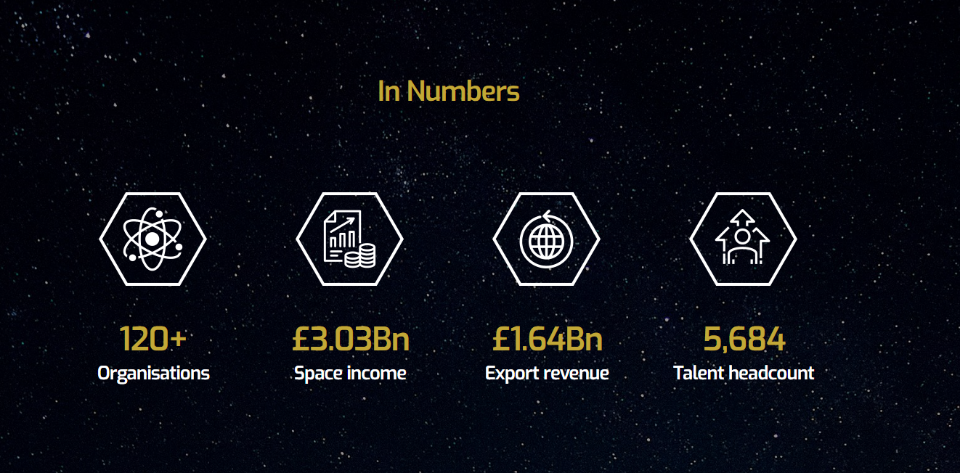
accelerate space business growth,
foster an environment of innovation,
grow the reputation of the south-central region,
and contribute to national prosperity.
A recent collaboration between our researchers and London-based business Flightform Insights will optimise the energy efficiency of offshore wind farms using satellite imagery.
We are home to 10 Enterprise Units (~100 staff & £10m turnover). The School of Healthcare Enterprise and Innovation holds several high-profile government contracts, such as the NIHR Evaluation, Trials and Studies Coordinating Centre (NETSCC) and the Southampton Health Technology Assessment Centre (SHTAC), as well as other consultancy services and strategic new businesses. It employs >290 staff and has an annual turnover of >£20m.
We are a lead institution of the National Biofilms Innovation Centre (NBIC). It facilitates national and international engagement and collaboration in biofilms through its networks. NBIC has developed relationships with over 100 industrial partners, 63 research partners, and delivered 81 proof-of-concept projects.
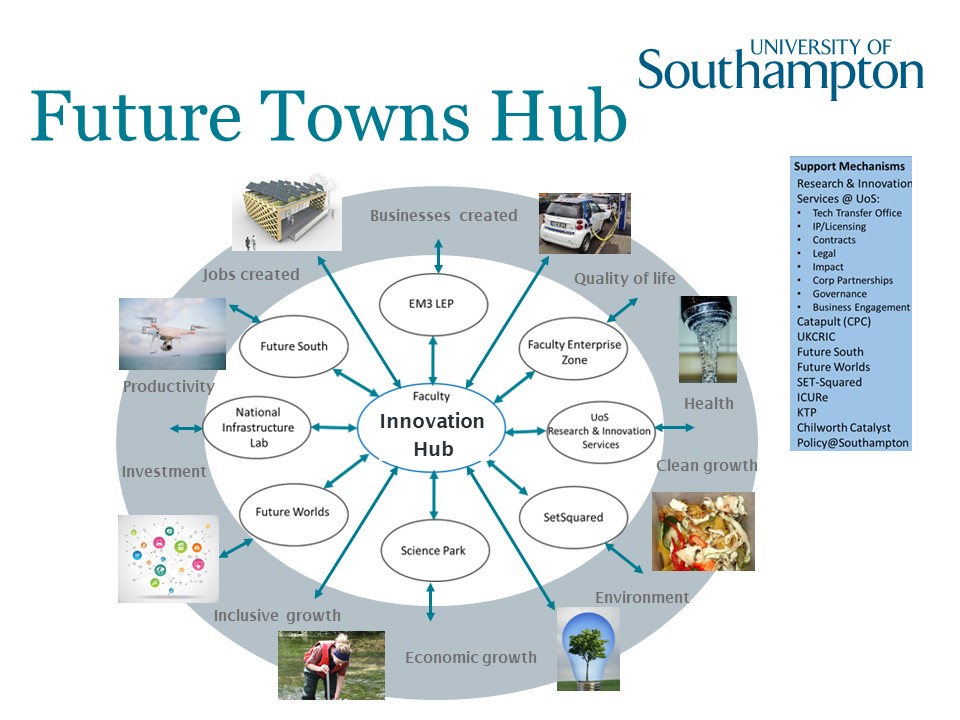
By 2030 we anticipate it will:
create 250 jobs,
25 new engineering-related businesses,
40 new business relationships between SMEs and large engineering companies,
And attract £70m private sector investment.
Enterprise is part of our undergraduate curriculum, with placements, internships, student exchanges and voluntary work honing essential employability skills. The Social Enterprise module run by the University of Southampton Social Impact Lab is available to students across most programmes of study. Outside the curriculum, Enactus Southampton helps students create social enterprises focused on environmental, economic, and social sustainability. Current projects include a large-scale aquaponic system in India, which reached the national final of the Enactus UK national competition in 2022.
Student Enterprise provides SEED Start-up Funding and Foundership cohorts for students to support the growth of business ideas. It provides team business challenges for start-ups, Start-Up weekends, workshops and 1:1 coaching to students. In 2021/22, it supported 656 students to progress their ideas and introduced the Small Business Speed Launch. This three-day event at Network Eagle Labs taught students skills including resilience, productivity, branding and website creation. It targeted students who wanted to set up a brand or side-hustle, create an e-commerce store, go freelance, or compete in an existing market. It engaged a new and diverse audience (60% of applications were aspiring women founders).
We provide a full programme of CPD delivering over 46,880 learner days in 21/22. In 20/21 we began a business improvement project to transform our delivery and grow our offering while placing user needs at the forefront.
We have a growing infrastructure for knowledge exchange activities, building collaborations to strengthen economies and sustainable communities.
We are home to several interdisciplinary institutes, which act as channels for KEE with public, private, and third-sector partners regionally, nationally, and internationally:
Institute for Life Sciences (IfLS)
Web Sciences Institute (WSI)
Zepler Institute (ZI)
Southampton Institute for Arts and Humanities (SIAH)
The Sustainability and Resilience Institute (established 2023)
They address cross-cutting themes tackling societal challenges such as better health; addressing sustainability, environment, and climate change; and pioneering in a digital age (AI and big data). A place-based approach is integral to each theme.
We contribute to the central South’s strength in life sciences, fostering a culture of collaboration. We are a founding member of the Wessex Academic Health Science Network and Wessex Health Partners. These connect academics, the NHS, industry, local government, patients, and the public to improve health and social care and further innovation within our region.
Drawing on our marine and maritime research strengths, we are founding partners alongside Solent LEP and ExxonMobil in The Solent Cluster (2022). An SMMI researcher is the academic lead. This decarbonisation initiative seeks to reduce CO2 emissions from industry, transport and households across the Solent and Southern England.
Aspect 3: Results
Our infrastructure for enterprise is providing innovative solutions to local and international challenges. It facilitates new business relationships, delivers new businesses, creates new jobs, and attracts investment to our region and beyond.
Income from Consultancy, Facilities, Regeneration Income, CPD and income generated from Intellectual Property was £79m/year in 2021/22 (source:HEBCIS). Since 2019, enterprise activity has brought in over £198m (19/20, 20/21, 21/22).
Since 2000 we have 77 new spinouts and academic start-ups taking an equity position in 35.
An independent report by London Economics showed the direct impact associated with our spinout activities in 20/21 was £370m in turnover, supporting 1,140 FTE jobs and contributing £126m of gross value added (GVA). The operations of our spinout companies; licensing of IP to other organisations; and business and community engagement services we supply, were worth £1,168m to the UK economy in 20/21.
The USSP Catalyst programme (established 2014) has accelerated progress for 73 companies, securing over £19m in grants and £28m in early-stage investment. Seventy-seven per cent of these businesses were still trading after five years (compared to the national average of 40 per cent) with most remaining in the region.
Recent spinout successes include:
iFAST Diagnostics raised £2m initial investment to track and treat antibiotic-resistant bugs.
ViridiCO2™ secured £3m in Seed Funding to make Chemical Products from CO2.
Audioscenic, developers of innovative 3D audio beam forming technology, received £5m Series-A investment.
Microsoft acquired Lumenisity® Limited which commercialises breakthroughs in the development of hollow-core optical fibre to improve performance in existing and next-generation communication networks.
AcclerComm secured £28.1m Series-B investment in Spring 2023 for bringing the latest channel coding innovations and algorithms to the practical challenges of implementing the latest wireless communications standards.
SETsquared has assisted new companies and facilitated university-to-business technology
transfer. 
An independent Impact Report from Warwick Economic and Development (2022) found that the SETsquared Partnership ecosystem has contributed £15.7bn GVA to the UK economy over the last 20 years.
To date, 525 teams have completed the ICURe programme, with women leading 30% of these. It has generated >200 new companies, resulting in >£250m in additional funding through investment and over 650 jobs. Since 2019, over 50% of teams participating from the SETsquared region have created new companies.
To date, Future Worlds has supported >65 staff and >300 projects leading to >£30m equity investment, >£120m investment at valuation and over 100 jobs. Recent student-founded start-up success ArchAI (Future Worlds Founders Cohort 2021) has won significant awards and investments.
Our interdisciplinary research in space, maritime, AI, and life sciences, has translated into high-impact collaborations with corporate partners.
Examples include:
Securing a 5-year Airbus Chair in Digital Design.
Signing a new 5-year Framework Agreement with BAE Systems.
Partnerships with Lloyds Register, Shell, Ocean Infinity, and Carnival lead to three Innovate UK Clean Maritime Demonstrator projects.
A KTP enabling the use of Maritime Engineering research to enhance the performance of Silverstream Technologies’ innovative market-leading air lubrication Silverstream® System, which reduces energy consumption and emissions.
Medical research in a consortium including strategic partners the Lung Cancer Initiative, Johnson & Johnson and Roche. The study secured £3.5m from UKRI’s Industrial Strategy Challenge Fund and recently won a Cancer Research Horizons Innovation and Entrepreneurship Award for industry-academia collaboration.
We responded to the COVID-19 pandemic by deepening our partnerships with the University Hospital Southampton NHS Foundation Trust, local authorities, and schools through the Hampshire and IoW Saliva Testing Programme. Within just 18 months the programme moved from concept to delivering a scalable service model capable of processing over 50,000 tests per day. Our LifeLab contributed to the success of the programme through co-designed and co-delivered teaching materials, reaching an estimated 10,000 education staff and 55,000 students.
Building on the relationships forged through the Southampton City of Culture bid, we co-designed our Civic University Agreement. We have committed to supporting KEE activities that build sustainable communities, promote equality, improve health and well-being, transform educational opportunities, close the digital divide, and strengthen economic prosperity.
In 2020/21 PPS brokered, designed, and delivered six PhD secondments on green recovery, levelling up, climate change, social care, and place projects.
Three AHRC-funded SIAH projects are researching the economic infrastructures of the cultural and heritage industries, particularly in the context of small cities, and towns, and the levelling up agendas. They are working with local and national civic partners to explore the links between place attachment, civic pride, and the health of local cultural ecologies. They aim to guide policymaking to serve community needs and better understand culture's role in regeneration.
Southampton’s City of Culture 2025 bid process discovered that young people and adults had different understandings of culture-based health and well-being opportunities and that access to these varied for young people across the city. We are part of Southampton’s efforts to become a UNICEF child-friendly city, through two consortia Connecting Culture (led by us) and the Southampton Cultural Education Partnership. They aspire that all children and young people growing up in Southampton enjoy and participate in creative, cultural and heritage opportunities and have a say in the city’s development.
Current projects working with Southampton’s young people on local regeneration include:
Interdisciplinary project Pathways to Health (UK Research and Innovation funded) is working alongside Southampton City Council and over 50 other civic partners to understand what culture means to young people and how they use place-based cultural assets. It will identify ways that young people can use arts and culture for self-care to reduce future health challenges and reimagine cultural provision within an integrated care system.
The Business School and FTIH enterprise project Sell Your Place with Southampton City Council, Solent LEP and Southampton-based employers will deliver an innovative economic development and enterprise programme for schools. Pupils will participate in a challenge to design the towns and cities of the future to develop business acumen and entrepreneurship.
Public & Community Engagement
Summary of approach
The University of Southampton recognises public engagement as vital to its role locally, nationally and internationally and has a track record of excellence. Our
Public Engagement unit (PERu) within Research & Innovation Services (RIS), inspires and supports high-quality engagement across all disciplines, collaborating with Public Policy, Widening Participation, Patient/PubIic Involvement and Faculty teams. A spectrum of opportunities and high-quality platforms (Arts/Humanities Festival, Science/Engineering Festival, Research Café, ‘Bringing-Research-to-Life’ Roadshow) provide entry-points for students, staff and community partners. Our Public Engagement Network, Community Engagement Hubs, annual seed-funding, support for evaluation, and training provide a maturing infrastructure within which engagement can thrive. Our new Strategic Framework for PCE provides direction and focus; oversight is provided by the Engaged University Steering Group (EUSGp).Aspect 1: Strategy
Building on guiding principles for PCE culture change set in 2015 and in tandem with a broader institutional strategy refresh during 2021-22, we have introduced a Strategic Framework for PCE which supports the University’s various Strategic Plans and informs all strands of business. The Framework encapsulates a shared understanding of the purpose, value and qualities of PCE at Southampton, to be embedded across our research, knowledge exchange and learning/teaching. Our shared purpose and ambitions for PCE are defined and directed via aims and objectives set within six broad themes: People & Partnerships; Research & Innovation; Teaching & Learning; Evaluation; Our Spaces & Places; Digital Media & Open Data. Collaboration continues to produce and monitor implementation plans which identify and prioritise actions/activities to support objectives within each theme. The Framework inspires, encourages, supports and directs PCE ambitions at institutional, departmental and individual levels; helping to fulfil our civic and social mission as a university.
This institution-wide strategic piece is led by PERu with oversight from the Engaged University Steering Group (EUSGp), who provide institutional governance for PCE. EUSGp membership reflects PCE leadership from each Faculty (Associate Dean/nominee), leads from relevant professional services and the Student Union; the group is chaired by the Vice President Research & Enterprise and reports annually to Southampton Enterprise Board (KEE governance body).
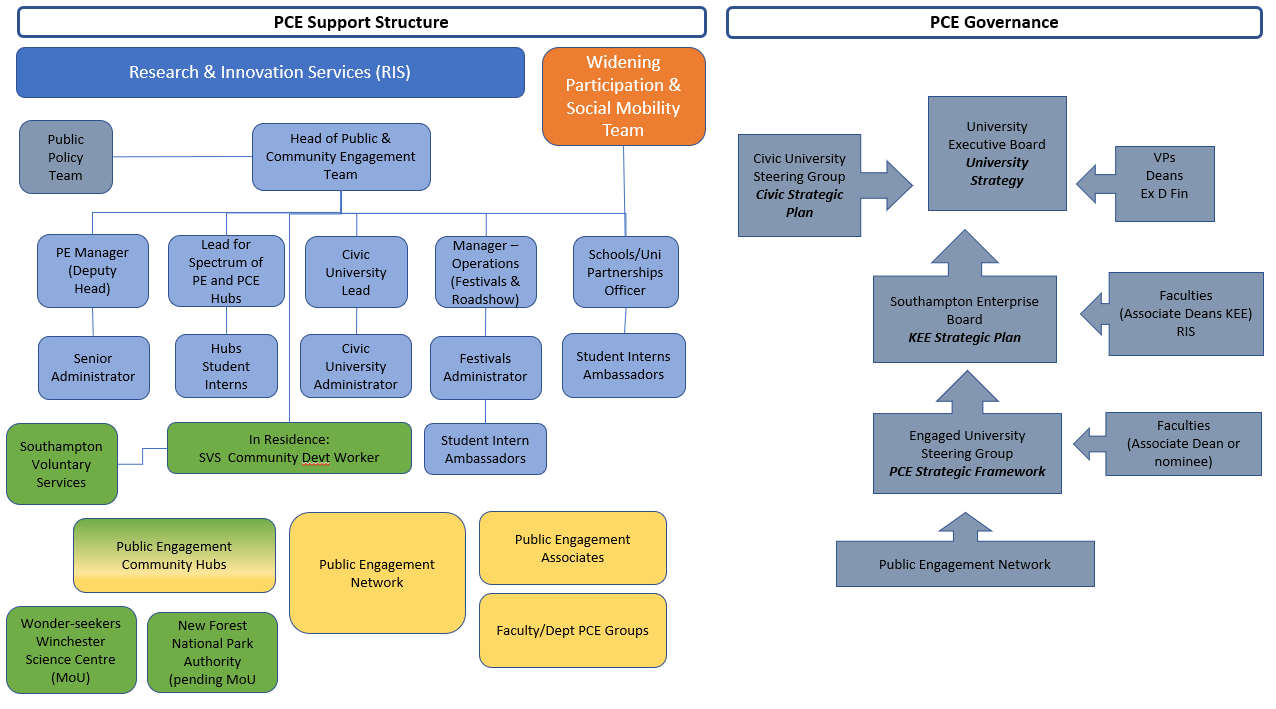
Alongside an established partnership with Winchester Science Centre additional strategic PCE partnerships are developing with: New Forest National Parks Authority and Southampton Voluntary Services (see also Aspect 2).
The University’s new Civic Strategic Plan, including the Civic University Agreement and Hampshire Universities Together (HUT) network, will play strongly into our PCE ambitions, building and enhancing local partnerships and working collaboratively to identify and meet local needs. A new Director of Civic & Arts will provide leadership.
The importance of EDI is reflected throughout our strategic objectives (explicitly within ‘People & Partnerships’) and applies EDI principles across our PCE, combatting inequalities and prejudice, valuing difference and embedding inclusivity; including reviewing/revising existing PCE activities/processes in the light of EDI principles and embedding EDI considerations in our PCE advice/support/guidance.
Aspect 2: Support
The PERu team support staff/students across all disciplines in design, delivery and evaluation of high quality PCE. They work collaboratively with Faculties and Professional Services (KE/PCE working groups, Research/Enterprise Officers, Impact Framework Manager, Widening Participation & Social Mobility WPSM, Centre for Higher Education Practice CHEP), ensuring PCE support is evidence-based and well connected within academic and professional service business-strands.
PERu is resourced through baselined funding with annual HEIF allocations for project-based work. This includes seed-funding distributed via the annual Development Fund Call – a vehicle for discovering/responding to community needs and fostering co-creative/productive PCE approaches. Seed-funds are channelled strategically to support: 1. Co-creation/co-production with local partners; 2. Development of citizen-science engagement approaches; 3. Reflective practice for PCE. External partners can propose and lead projects. See also Aspect 3.
Additional strategic investment from 2023 to progress the civic agenda will support local community-based PCE.
PERu Support Strands

Seed-funded teams are encouraged to reflect on/share their work in a cohort-based approach supporting shared learning, through review-meetings, presentations and reporting; culminating in celebratory showcase events for a wider audience. Our bank of PCE Case Studies features selected projects to further inform and inspire.
Our PCE Platforms enable staff and students to engage with public audiences across the year; this ‘spectrum of engagement’ is curated to foster skills-development/experience in high quality PCE within a supported environment. See also Aspect 3.
PERu coordinates training/development opportunities using expertise from PERu, other colleagues and external contributors providing a range of sessions within the broader staff development offer. Collaborative delivery of ‘Getting Started with Public Engagement with Research’ for Medicine researchers ran successfully during March-June 2022 and will be further developed in 2023. On-line resources including training videos are available on PERu and Festivals SharePoint pages.
Our Activity Mapper enables PCE activities to be logged, tracked and interrogated. Focussing on the relations between people and activities the Mapper facilitates connections between individuals, teams and projects; the database can be manipulated and explored very easily for individual/departmental purposes and for institutional management/reporting. Our strategic focus on evidencing/evaluating high quality PCE (see Aspect 4) includes enhancement of Mapper functionality, alongside new resources such as the Social Value Framework and Toolkit (to recognise, maximise, and appropriately capture benefits of socially-engaged knowledge exchange including PCE).
The PERu team provides advice and guidance via email and ‘drop-ins’. Excellent connectivity with related teams enables collaborative opportunities to be identified and shared/maximised (see also Aspect 3). We maintain a variety of digital channels: our Twitter and Facebook accounts keep people up-to-date about events/opportunities. The PERu website serves a public audience, alongside the PERu and Festivals SharePoints for staff/students, and related Faculty sites (eg Engaged Medicine SharePoint). Our high-profile Festivals have bespoke visitor websites designed for enhanced accessibility and a diverse audience see eg FAQs.
Connectivity is supported via the longstanding Public Engagement Network (PEN). The PEN Teams channel introduced during lockdown has proved effective and will supplement in-person meetings going forward. Our themed Public Engagement Hubs connect those with shared interests from inside and outside the University to facilitate partnerships and co-creation around topics of local/regional significance with collaborative potential.
From 2021 PERu has led on scoping/developing a Civic University Agreement (CUA) within a new Civic Strategic Plan for the University. This includes ‘In Residence’ partnership working with Southampton Voluntary Services (SVS). PERu hosts a Community Development worker to broker connectivity to the voluntary sector/local communities and act as a critical friend/advisor. A major focus is on changing access to research-needs information particularly around social prescribing – connecting with work in the Hubs and fruitful for PCE collaborations.
In line with EDI objectives (Aspect 1) to ensure that PCE activities are inclusive and accessible we have introduced training: ‘Towards understanding autistic people’ and ‘Working with people with vision impairments’; and made accessibility enhancements to our Festivals, to lead the way and model good practice (see also Aspect 3).
There are a variety of options for rewarding/recognising PCE. ‘Outreach & public engagement’ is included in contribution matrices for academic staff promotion; this will be reviewed as Career Pathways are formally reviewed/refreshed during 2023. PCE appears within award schemes: Dean’s Prizes; Doctoral College Director’s Awards; Vice Chancellor’s Awards (within ‘Public Good’). The contributions of staff/students and external exhibitors to our Festivals are celebrated through annual awards. From March 2022 the Faculty of Medicine with University Hospital NHS Trust introduced a Public Contributors Recognition Scheme to acknowledge/celebrate members of the public working with university staff, helping to secure lasting and collaborative connections with people and communities.
Recognising PCE’s potential to enhance the student experience, we are proactive in involving students within our support strands, e.g. regular paid internships across the PERu team and having student ambassadors at Festivals. Introducing students to the concept/existence of PCE at an early stage via student fairs and Halls Open Days is helping generate interest; PERu interns have become passionate advocates.
Aspect 3: Activity
Annual Festivals are core to our PCE activity, with a strategic focus on: attracting and engaging diverse audiences; delivering high quality accessible content; expanding participant/exhibitor bases to include local organisations/community groups. Through Festivals we open our campuses and research facilities for visitors to meet our staff/students, sharing learning/expertise through interactive activities in a multi-generational family experience. Facing the challenges of Covid19 and navigating a steep learning curve, Festival programmes were adapted to go online. ‘Southampton Science & Engineering Festival (SOTSEF) Goes Digital’ was launched for May-July 2020 offering: virtual tours, talks, podcasts, workshops and downloadable resources. ~22,000 people across six continents visited the website; a curated SOTSEF Goes Digital Playlist 2020 forms a legacy resource. 2021 into 2022 saw a cautious return to in-person events with Southampton Arts & Humanities Festival and SOTSEF resuming hands-on/family days while retaining elements of digital programming; we continue with a blended offer to consolidate expertise and maximise ways and means to engage with existing and new Festival audiences, whoever and wherever they are. Recent Accessibility enhancements allow us to respond more sensitively to diverse needs within our audiences. We are actively encouraging collaboration from local partners to contribute content as we seek to build connectivity across our local communities; our work with SVS and local groups including via our Hubs is proving fruitful for this and we are learning how to adapt our processes/expectations to better enable such co-curation (see Aspect 4), including a dedicated ‘Community Zone’ within SOTSEF 2023. Activities also run annually for the ESRC Festival of Social Science.
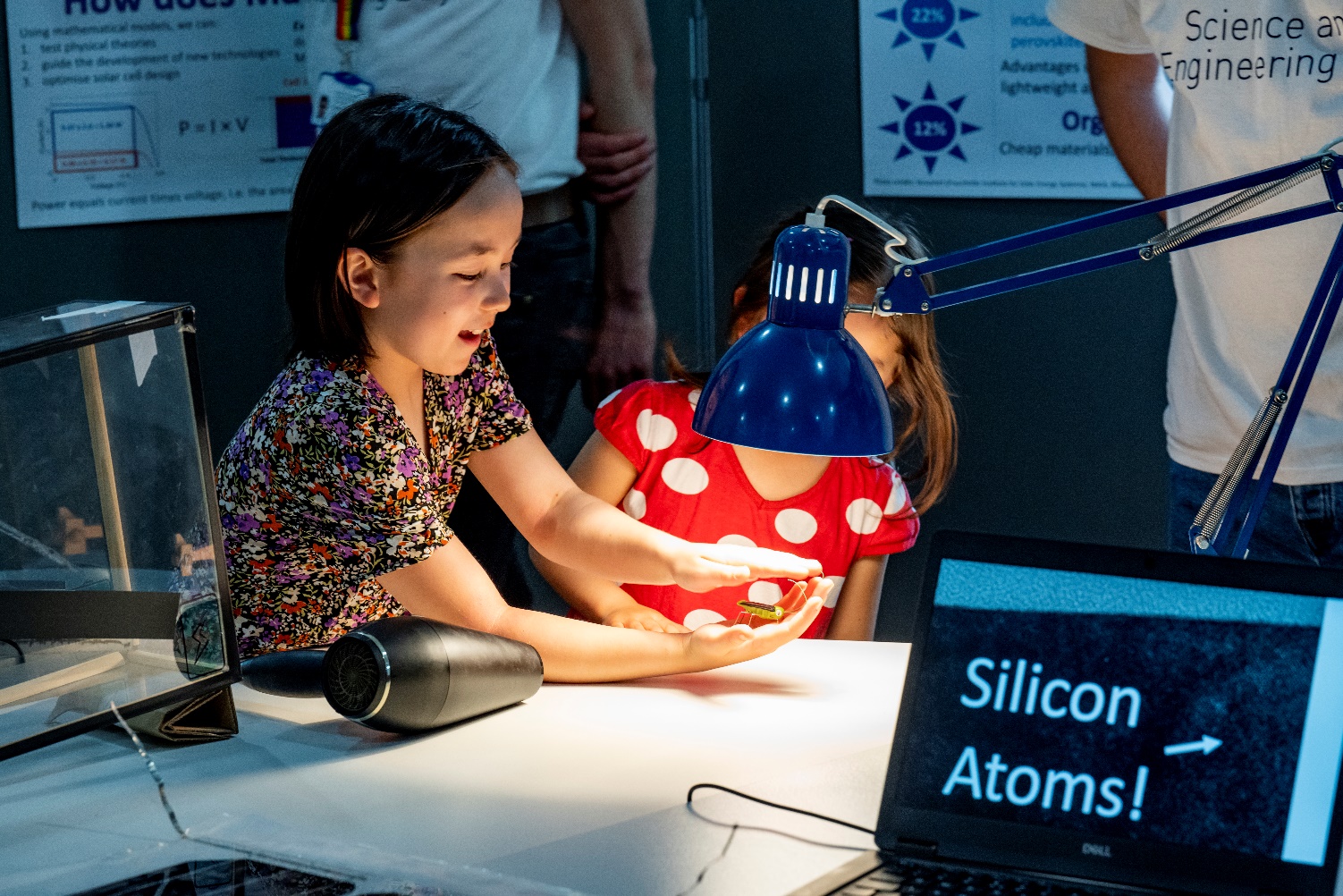
Science & Engineering Day 2022
Our ‘Bringing Research to Life’ Roadshow returned (following lockdown) in June 2022 at the New Forest & Hampshire County Show - a welcome opportunity for researchers to discuss their work with Show visitors.
“The Roadshow gave us a fantastic opportunity to show the public what drone corridors over the New Forest might look and sound like in the future. With over 350 people trying out our virtual reality headsets, showing drones flying at different heights over the showground, the UoS Roadshow provides a unique opportunity to bring research to the public in a fun and engaging environment”. Prof Tom Cherrett, Transportation Group.
A team of innovative student-interns working across PERu/WPSM (June 2020-December 2021) led our ‘Activity Packs’ project, responding to local need in our communities to address the digital divide exacerbated by Covid19. ~20,000 self-contained packs of themed learning activities were distributed via schools, charities and youth organisations, providing new ways for children to learn outside of school, and building proactive relationships with a range of communities.
“Thank you so much for the packs! The speed and distribution of delivery really helped supplement the education offer for our children, it was nice to be able to offer something ‘real’ rather than something else online. The packs covered a range of topics and sustained interest for our children. The project also enabled our children to feel valued, people from university were helping them with their education. Amazing, please keep this going.”
Maria Anderson, Headteacher of Southampton Virtual School and College, Southampton City Council
Based on the scheme’s popularity this work continues with an adjusted focus to informal learning settings eg youth-groups; and in connection with specific projects such University of Sanctuary.
39 Development Fund awards were made across the reporting period, supporting a wide variety of PCE projects, increasingly co-created with external partners. For example, The Foot Health Partnership Project (2020/21), a community-partnership delivering/evaluating a co-developed educational programme in the heart of the City with podiatry students and Age UK Southampton; bridging the ‘service-gap’ in foot-care for lower risk elderly people and providing community-based practical experience (with professional verification) to participating students. Evidence from the seed-funded activity/evaluation is enabling this approach and partnership to be continued.
A new Youth Panel is building the ideals of participatory research into LifeLab’s work with young people. Through termly recruitment, teams of young people from diverse backgrounds are convened (paid/trained as UoS employees) and tasked with specific projects. Youth Panel 1 co-created a series of 3 animations to explain ‘In a nutshell: What is Clinical Research?’; they also explored research undertaken in the NIHR Southampton Biomedical Research Centre and selected some areas they wanted to find out more about. They prepared questions, interviewed the researchers and wrote a research article based on the interview for UHS Clinical Research Magazine.
“I feel it’s really important for young people to have a voice and to be recognised as an important part of research and future discoveries. Opportunities such as the Youth Panel inspire confidence in young people, myself included, to get involved.” Youth Panel member
With other HEI collaborators, UoS has been at the forefront of democratic innovation through the introduction of Citizens’ Assemblies in the UK; a new Citizens’ Assembly (Southampton Net Zero by 2035) will engage local people and accelerate the implementation of changes needed to reach this challenging target to tackle climate change.
Aspect 4: Enhancing practice
We take an institution-wide approach to monitoring/evaluating PCE, articulated via the Evaluation theme within our Strategic Framework. Strategic Aim 1 focusses on building capacity/capability for effective evaluation:
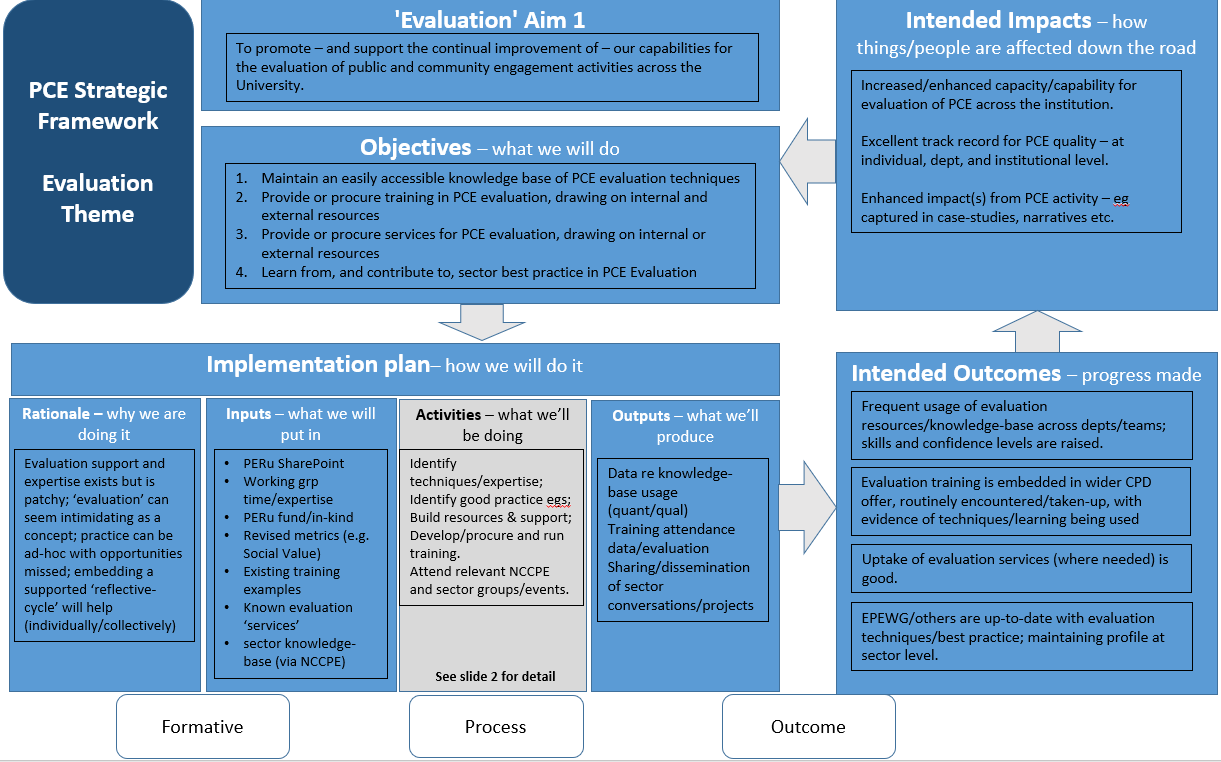
Further aims address: (2) Using evaluation to routinely identify and share what works well and what could be improved (to support continual improvement of activities); and (3) Being able to demonstrate and benchmark the quality and effectiveness of activities against internal/external drivers.
The Evaluation of Public Engagement Working Group (EPEWG), reporting to EUSGp, is responsible for developing implementation plans to support these aims. Through its membership, the Group draws expertise from PERu, WPSM and Faculties, and connects with related groups (eg Medicine Evaluation WGp).
We support staff and students to build confidence and capacity for high quality evaluation through training and resources; we are currently reviewing these as part of Aim 1 implementation. A new Social Values Framework/Toolkit allows colleagues to recognise, maximise, and appropriately capture the benefits of socially-engaged knowledge exchange (including PCE); workshops are supporting its roll-out.
At PCE activity level: Development Fund teams are required to evaluate their projects and each cohort must report-in and share their experiences (success/challenges/learning) including a facilitated ‘interim catch-up’.
Strategic objectives are set for our Festivals with feedback routinely sought from visitors, exhibitors (staff/students/community) and the operational team; this is used formatively, e.g. responding to needs of community partners we are looking to provide more support with our application-process, risk-assessments etc.
Data/graphic from ‘SOTSEF Goes Digital 2021’ Report:
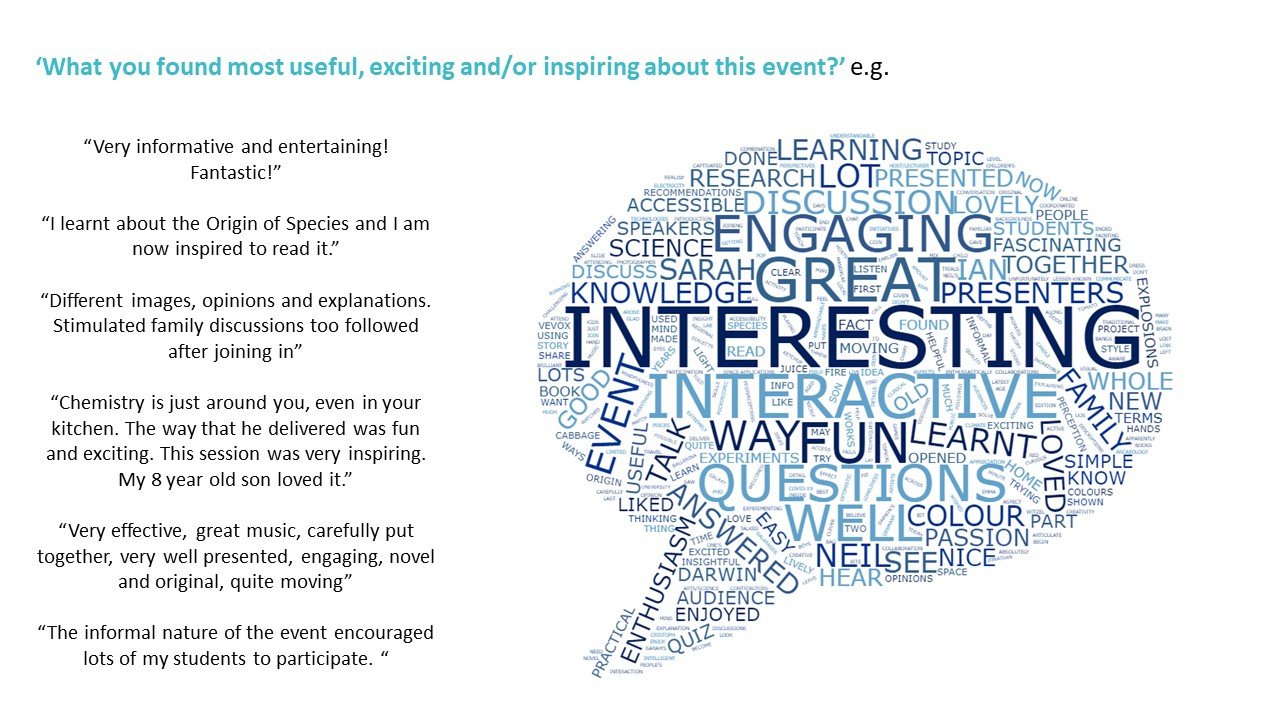
How best to meaningfully collect and share evidence across the institution is a live discussion across EPEWG, EUSGp and SEB; Framework implementation plans, currently under development and linked to other strategic action plans (KEE), will address this challenge.
Aspect 5: Building on success
Our PCE Strategic Framework provides a basis for governance groups at different levels within the University to consider and reflect on achievements/levels of success over time, including the effectiveness of support mechanisms outlined in Aspect 2. Regular informal reporting into EUSGp from all members (with formal annual reporting to SEB for KEE strategy) provides an overview, supports connectivity across disciplines and workstreams and enables informed collective decision-making. Framework implementation plans will bring accountability and timelines for specific priorities as they are agreed.
We are bringing external voices/perspectives into the oversight and steering of our work; particular initiatives play into this: having SVS as a critical friend (via ‘In Residence’ partnership working); harnessing varied perspectives via our Community Hubs membership; and mechanisms such as the Public Contributor model within Faculty of Medicine.
Evaluation data is helping to shape our Festivals, with evidence-based reporting to the respective steering groups, to enhance future iterations.
The Development Fund reporting process is formative, seeking to build a culture of self-reflection and peer-to-peer support. Online Case Studies from seed-funded projects inspire and share learning across and beyond the University; tracking the legacy of these activities (e.g. into broader/longer-term projects) helps demonstrate the value of early-stage or small-scale PCE.
Reflection on the nexus of shared values, principles and practices across PCE/Civic and WPSM and the benefits of partnership working – exemplified in our schools/university partnerships work - led to a sector briefing document shared with the Civic University Network, and related presentation/poster at NCCPE Engage 2022.
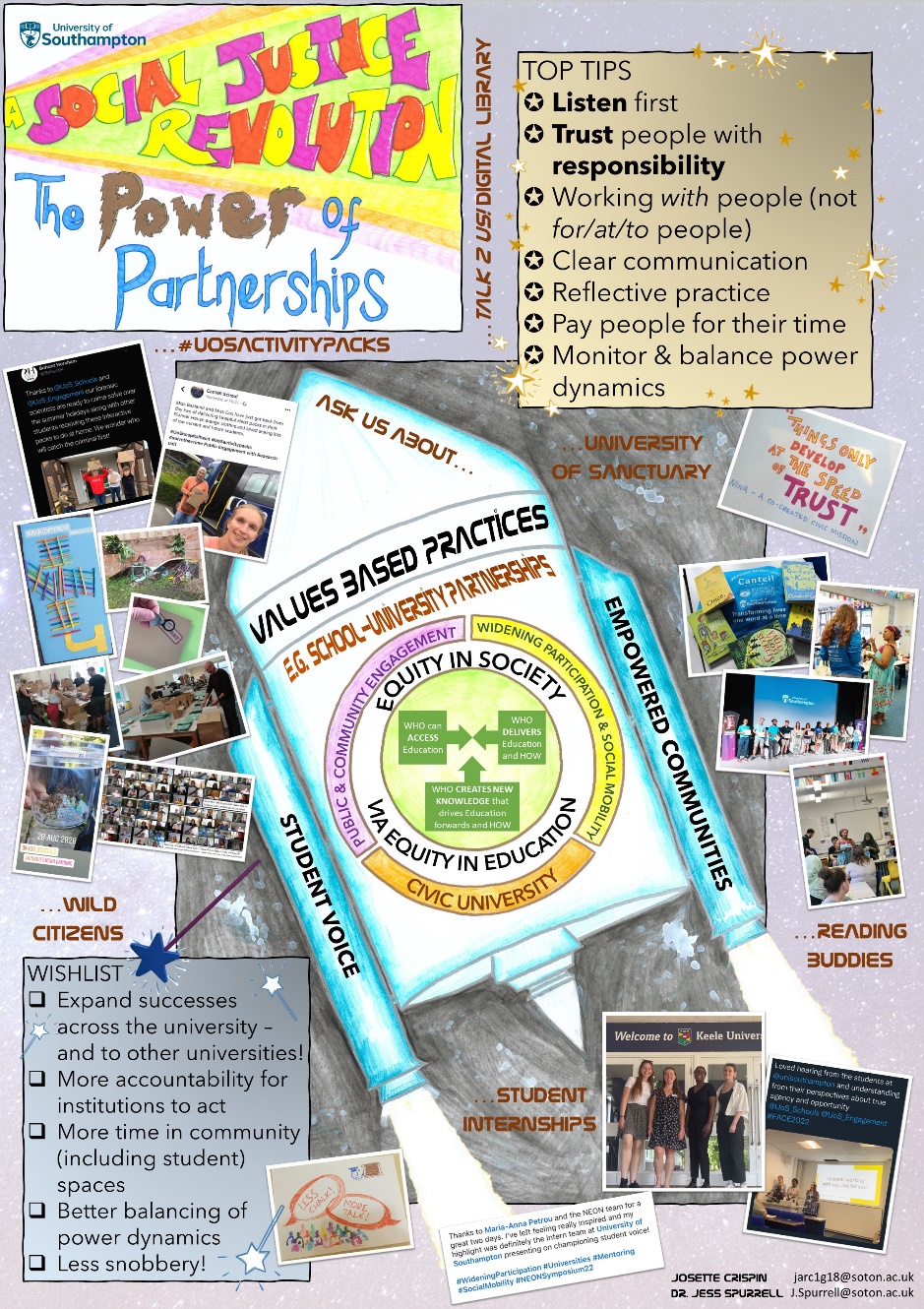
Note You are currently viewing the latest version of this narrative statement. View the previous version as published in previous iterations of the KEF (KEF1 and KEF2)
